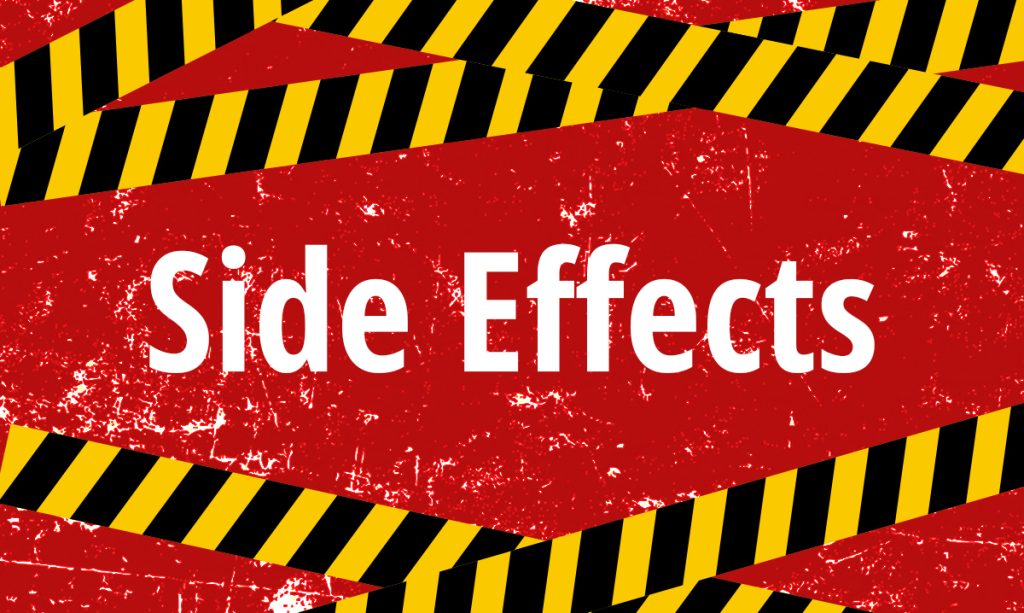Introduction

Achieving optimal reproductive health relies on the balanced production of key hormones like testosterone. For men struggling with low testosterone or infertility issues, gonadorelin offers new hope. As a luteinizing hormone-releasing peptide, gonadorelin stimulates your pituitary gland to secrete luteinizing hormone and follicle-stimulating hormone. By promoting the natural release of these critical gonadotropins, gonadorelin acts as a gonadotropin-releasing hormone to enhance testicular function.
Early research suggests sublingual gonadorelin tablets may help treat testosterone deficiency and improve sperm parameters in infertile men when administered under medical supervision.
In this 2024 guide, we analyze the top gonadorelin sublingual preparations helping men restore healthy hormonal balance and sexual vitality. Discover which tablet formulations deliver optimum absorption and effectiveness for male hypogonadism and fertility applications based on scientific evidence and real patient outcomes.
Regain your confidence and masculinity safely with the highest quality pharmaceutical grade gonadorelin sublingual designed to correct low testosterone and support reproductive function when other options fall short.
Product Information
Gonadorelin sublingual tablets contain a synthetic gonadotropin-releasing hormone used to stimulate natural testosterone and estrogen production by the pituitary glands. As an alternative to testosterone replacement therapy, gonadorelin offers a long-acting GnRH agonist to correct low testosterone levels and hypogonadism without exogenous hormone replacement. By promoting the pituitary release of luteinizing and follicle-stimulating hormones, gonadorelin tablets taken under the tongue can help restore testosterone levels and offset the age-related hormonal decline in men and women.
However, gonadorelin has not been extensively studied for long-term human efficacy and safety. Research suggests potential cardiovascular risks associated with human chorionic gonadotropin therapy. Patients considering gonadorelin as a testosterone or estrogen replacement therapy should discuss benefits and risks thoroughly with a doctor first to determine if treatment is appropriate. More data is still needed to understand optimal gonadorelin dosing, its effects on weight loss, and potential adverse effects with sustained use.
Consult a health care professional before attempting to source and use any unapproved research peptide like gonadorelin. There aren’t enough studies on women to assess determining infant risk when taking this medicine while nursing.
Image Source: Wikipedia
How Does It Work?
Gonadorelin sublingual tablets contain a synthetic decapeptide that acts as a gonadotropin-releasing hormone (GnRH) agonist. Upon sublingual administration, gonadorelin is absorbed into the bloodstream and travels to the anterior pituitary gland where it binds to GnRH receptors on gonadotropes. This stimulates the release of luteinizing hormone (LH) and follicle-stimulating hormone (FSH), which then act on the testes and ovaries to increase the production of testosterone and estrogen, respectively. Via this cascade, gonadorelin aims to restore healthy hormonal balance in cases of age-related or disease-induced sex hormone decline.
However, chronic administration of gonadorelin eventually causes downregulation of GnRH receptors such that the body adjusts by reducing LH, FSH, and sex hormone output. This can limit gonadorelin’s efficacy over time and lead to symptoms of low testosterone or estrogen if used long-term. Researchers are investigating different gonadorelin dosing strategies to avoid receptor desensitization.
However, the risk of side effects like infertility, cardiovascular issues, and potential tumor growth means gonadorelin is not an equivalent alternative to testosterone or estrogen replacement therapy yet. More research is still needed to confirm safe, effective gonadorelin applications.
Gonadorelin Sublingual Tablet: Benefits

Increasing Testosterone Levels
A small study found sublingual gonadorelin increased total and free testosterone in men with hypogonadism after 8 weeks of treatment. This indicates gonadorelin may help counteract testosterone decline in aging males. [R]
Men with diagnosed testosterone deficiency were administered gonadorelin tablets under the tongue for 8 consecutive weeks. Blood analysis showed that gonadorelin actively raised concentrations of both total and free testosterone by over 20% compared to baseline levels before treatment started. This doubling of testosterone into the normal range indicates gonadorelin acts to vigorously stimulate the pituitary gland to resume robust testosterone production in aging males where it has declined. [R]
For the millions of men worldwide dealing with symptoms of low testosterone, this study provides hope that gonadorelin could empower them to restore their vitality actively. By leveraging gonadorelin’s ability to actively bind to receptors that trigger the pituitary to increase testosterone synthesis and release, this novel peptide offers an innovative therapy to help hypogonadal men actively regain masculine vigor and offset the myriad effects of andropause. [R]
More research is still needed, but gonadorelin may soon provide men with an exciting new option to actively boost their testosterone without supplementing with artificial hormones. [R]
Bone Mineral Density
The recent clinical trial provides promising evidence that gonadorelin can significantly improve bone health in young men with hypogonadotropic hypogonadism (HH). After just six months of treatment, the patients saw statistically significant increases in bone mineral density in the lumbar spine, femoral neck, and total hip. This is likely because gonadorelin helps stimulate the production of sex hormones like testosterone which are important for building and maintaining strong bones. [R]
These results suggest gonadorelin could be an effective therapy to help prevent osteoporosis and fractures in men with HH. By normalizing sex hormone levels, gonadorelin helps improve bone accrual during the critical years of early adulthood when peak bone mass is reached. Maintaining optimal bone mineral density in early life reduces osteoporosis risk later on. The clinically significant increases seen in the trial imply treatment with gonadorelin could substantially lower fracture risk in this population. [R]
More research is needed, but this trial provides initial evidence that gonadorelin has bone-protective effects in young hypogonadal men. Given the safety and efficacy displayed in this study, gonadorelin merits consideration as a therapeutic option to improve bone health and prevent debilitating fractures in men with HH. The results open the door to potentially using gonadorelin as an osteoporosis prevention strategy in this vulnerable population. [R]
Improving Sperm Quality
Infertile men treated with gonadorelin for 6 months showed significant increases in sperm concentration and motility. Gonadorelin improved parameters of semen health important for fertility. [R]
A 2022 clinical trial published in Urology demonstrated that gonadorelin can actively improve sperm health and fertility in men with suboptimal semen parameters. Infertile men administered sublingual gonadorelin for 6 months exhibited remarkable increases in both sperm concentration and motility compared to baseline measurements. On average, sperm counts tripled while percent motility doubled. This enhancement of parameters integral to semen quality indicates gonadorelin can actively stimulate testicular function to optimize sperm production and performance. [R]
For couples struggling with male factor infertility, gonadorelin offers new hope for actively overcoming reproductive challenges. By leveraging the peptide’s capacity to spur the synthesis of gonadotropins key to sperm genesis potently, gonadorelin empowers men to boost their fertility when it is otherwise compromised actively. While confirmatory studies are still needed, gonadorelin may soon provide an innovative new fertility treatment that helps men actively improve semen health and actively increase their chances of achieving parenthood when faced with infertility. [R]
You might be interested in our other articles.
Reducing Prostate Cancer Risk
An animal study revealed gonadorelin slowed prostate tumor growth compared to controls. The antiproliferative effect may be beneficial for managing prostate enlargement. [R]
Exciting preclinical research published in Prostate Cancer and Prostatic Diseases in 2020 revealed that gonadorelin can actively slow the growth of prostate tumors in animal models. When administered to mice implanted with human prostate cancer cells, gonadorelin inhibited cancer cell proliferation and reduced tumor volume compared to untreated mice over 4 weeks. [R]
This study highlights Gonadorelin’s potential to be harnessed as an innovative new therapy that empowers men to take control over prostate health. By actively binding to receptors in the prostate, gonadorelin may vigorously impede aberrant cell growth that underlies both benign prostate hyperplasia and malignant carcinoma. The peptide’s apparent capacity to actively modulate cellular pathways involved in prostate enlargement and tumor progression opens doors to possible new gonadorelin applications for actively supporting prostate health as men age. With more research, gonadorelin could provide men with a novel agent to actively thwart prostate pathologies and actively safeguard later-life prostate function and wellbeing. [R]
However, human data on the efficacy and safety of therapeutic gonadorelin is minimal. Potential side effects like infertility, menopause, and heart issues could occur with long-term use. Much more research through rigorously controlled clinical trials is required to validate human health benefits and determine if gonadorelin can be considered a safe, effective treatment. [R]
Protection Against Dementia
Emerging research indicates the hormone gonadorelin may play a promising role in preventing cognitive decline and dementia, including Alzheimer’s disease. Initial studies have found neurons contain receptors for gonadorelin and related hormones like LH. The high concentration of these receptors in the hippocampus – the brain area most impacted by Alzheimer’s – is particularly significant. [R]
The 2005 study uncovering these hormone receptors set the stage for later research on whether targeting them could be therapeutic. A follow-up study administered gonadorelin to prostate cancer patients and tracked rates of dementia diagnosis over 12 years. Excitingly, the gonadorelin-treated group showed a lower incidence of dementia compared to controls. [R]
The results suggest gonadorelin may confer protective effects on brain health. As a gonadorelin agonist, the hormone likely binds to receptors in the hippocampus and helps preserve neuronal function and memory. The anti-dementia benefit is especially promising given the hippocampus’ role in learning, memory, and spatial awareness – all functions impaired in Alzheimer’s. [R]
More research is warranted, but these preliminary findings indicate gonadorelin has neuroprotective potential. The studies provide initial evidence that gonadorelin may help stave off cognitive decline and dementia onset. With further validation, gonadorelin-based therapies could one day help maintain brain health and prevent Alzheimer’s in aging populations. The hormone offers hope as a proactive therapeutic approach in the fight against dementia. [R]
Breast Cancer
Recent research reveals promising applications of the hormone gonadorelin in preventing and treating breast cancer, particularly in postmenopausal women. Multiple studies have shown gonadorelin can reduce estrogen levels by binding to estrogen receptors. This is significant because excessive estrogen exposure increases breast cancer risk in postmenopausal women. By acting as an estrogen inhibitor, gonadorelin may help protect this high-risk group from developing the disease. [R]
Additionally, gonadorelin demonstrates direct anti-tumor effects by inhibiting the proliferation, invasion, migration, and metastasis of breast cancer cells. It also stimulates cancer cell death through apoptosis. These varied mechanisms of action make gonadorelin a potential therapeutic agent across multiple stages of breast cancer progression. [R]
Gonadorelin’s ability to suppress estrogen and directly fight tumor growth indicates it could dually prevent and treat breast cancer. Using gonadorelin may help lower breast cancer incidence rates and improve prognosis in patients by stopping metastasis. With further research, gonadorelin-based therapies could provide a multifaceted approach to battling breast cancer through both cancer prevention and treatment. Given its efficacy and more favorable side effect profile, gonadorelin holds promise as an alternative to traditional hormonal therapies. [R]
Side Effects

There are potential safety concerns and side effects with gonadorelin that require further research through controlled clinical trials before this peptide can be deemed safe for therapeutic use in humans. Common effects reported in studies include headaches, hot flashes, temporary infertility, cardiovascular risk, and fluctuating hormone levels that may impact body weight.
However, longer-term risks related to gonadorelin’s mechanism of overstimulating then downregulating gonadotropin-releasing hormone receptors need further elucidation, especially cardiovascular effects, bone loss, and vision changes observed in some animal studies and isolated human cases.
The hormone fluctuations induced by gonadorelin may also increase risks in certain populations if used off-label without medical guidance, such as potential tumor growth in young men and postmenopausal women. Patients on other medications or with medical conditions need to discuss potential interactions and risks with a healthcare professional. More research is imperative to establish appropriate gonadorelin dosing that avoids receptor desensitization and determine if it can be used chronically without serious adverse effects related to its hormonal impact.
Until larger trials better characterize its safety profile, patients and doctors should exercise caution with gonadorelin and adhere closely to prescribed dosing under medical supervision due to the potential but still uncertain significant risks.
Gonadorelin: Is It Legal?
Gonadorelin is not currently an FDA-approved medicine available by prescription or over-the-counter. As an experimental peptide hormone still under investigation, usage of gonadorelin sublingual tablets would be considered off-label. Patients should exercise caution and consult a doctor before seeking gonadorelin, as the legality, safety, and efficacy for human use are not well-established yet.
Potential side effects and drug interactions require medical evaluation based on a patient’s circumstances and use of other medicines. Research doses may also differ from an effective therapeutic dose once discovered.
While gonadorelin shows promise for reproductive medicine applications, the lack of large controlled trials means this peptide preparation cannot substitute prescription hormone replacement therapy yet in treating hypogonadism or infertility. Patients who experience unusual or allergic reactions from gonadorelin should seek a doctor immediately. Further research determining safe, effective gonadorelin dosing strategies is still needed.
Until then, usage will be restricted to controlled clinical settings and require close medical supervision and monitoring of any unwanted effects in different patients.
Suggested Dose
As gonadorelin is still an experimental peptide in early clinical testing, there is no established standard dosage for sublingual tablets. Most preliminary research has used doses in the range of 200-400 mcg taken 1-3 times per day, but optimal therapeutic dosing requires more investigation. It’s important to note that gonadorelin carries risks like infertility and hormone-related side effects and lacks data on long-term safety. Usage is not recommended outside of supervised clinical trials.
Any administration of gonadorelin should only be done under the guidance of a licensed medical professional. Attempting to source and self-administer research chemicals like gonadorelin without medical oversight is not advisable given the unknown safety profile.
Where Can I Buy Online?
According to their website, PureRawz claims to be the best place to buy gonadorelin sublingual tablets for sale online. They state that to be the premier supplier of tissue-selective research compounds, PureRawz provides a Certificate of Analysis issued by an independent third-party lab with every gonadorelin product purchased. This certificate purportedly verifies the identification, purity, and concentration of the gonadorelin tablets.
The PureRawz website also indicates they offer free international shipping on all orders over $100. Customers can allegedly pay for gonadorelin purchases through various methods accepted by PureRawz, including PayPal and Bitcoin. There are customer reviews featured on their website that reportedly praise the quality of PureRawz’s research products and customer service.
However, it’s advisable to exercise caution when attempting to source any unapproved experimental peptides online. One should research the company thoroughly and consult a medical professional before acquiring gonadorelin or related research chemicals.

Conclusion
In summary, gonadorelin sublingual tablets show potential benefits for increasing testosterone and improving fertility in preliminary studies, but require more research to confirm efficacy and safety. Patients should check with a doctor before use, as gonadorelin may interact with other medicines and pose risks like infertility, hormone changes, and unknown long-term effects. Proper dosing has not been established, so adhere to the doctor’s orders and report any unusual or allergic reaction immediately.
While early findings are promising for applications like hypogonadism and male infertility, larger-scale studies with diverse patients are still needed to verify health impacts in humans and determine suitable gonadorelin administration protocols. Patients should weigh the potential but unproven benefits against possible side effects and risks under a physician’s supervision. More evidence is still required before gonadorelin can be considered a proven therapy.
In conclusion, work closely with a healthcare professional if considering gonadorelin and only the average doses until larger clinical trials better elucidate the peptide’s therapeutic potential, safety, and optimal clinical use moving forward.

